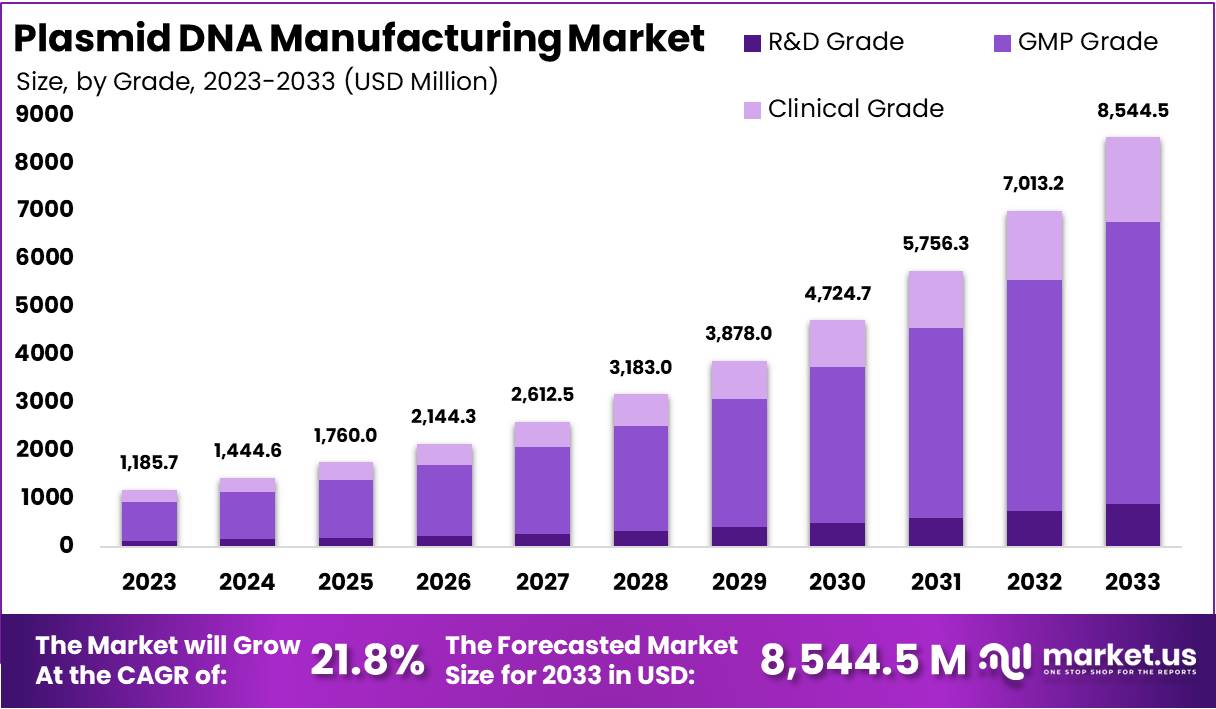DNA Revolution: Plasmid Manufacturing Boom Signals Biotech's Next Giant Leap

Plasmid DNA Manufacturing Market Poised for Remarkable Growth
The global plasmid DNA manufacturing market is set to experience an extraordinary transformation, with projections indicating a substantial leap from USD 1,185.7 million in 2023 to an impressive USD 8,544.5 million by 2033. This remarkable growth trajectory represents a compelling opportunity for investors and industry stakeholders.
The surge in market valuation reflects the increasing importance of plasmid DNA in cutting-edge biotechnological applications, including gene therapy, vaccine development, and advanced genetic research. As scientific innovation continues to push boundaries, the demand for high-quality plasmid DNA manufacturing is expected to escalate dramatically.
Key factors driving this exponential growth include breakthrough medical research, expanding pharmaceutical investments, and the rising global focus on personalized medicine and genetic treatments. The market's potential signals a promising future for biotechnology and pharmaceutical industries worldwide.
Investors and industry professionals are closely watching this market, anticipating significant technological advancements and strategic opportunities in the coming decade.

